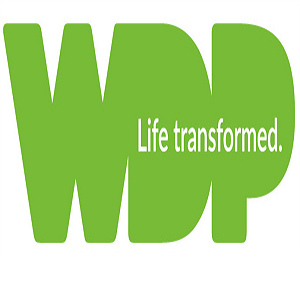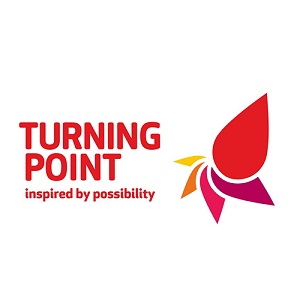Drug & Alcohol Rehab in Chester

How Does Rehab Work?
Rehab involves the support services and therapies that individuals with drug or alcohol addiction receive to conquer addiction and subsequent relapse. As soon as a medical assessment and detox are completed, individuals will start addiction treatment in the form of therapy. Treatment consists of therapy from a qualified counsellor, the attendance of group meetings as with a 12 step programme, and the option of inpatient or outpatient rehabilitation. Inpatient rehab services require that clients live at the residence or centre for the duration of therapy. Outpatients will attend therapy by counselling or meetings but will not stay at the facility. Consultation with a medical professional as well as an individual assessment can help evaluate if inpatient or outpatient services are suitable for your requirements.
What Happens During Residential Rehab?
Rehab is the first brave step towards recovery and sober living. It can be challenging to work on quitting addictive behaviours on your own but with the support of professional intervention, a substance-free life can be achieved. You may fear the unknown; however, a breakdown of the process can help put your mind at rest.
During rehabilitation, you can expect to get an individualised assessment done by a professional. The purpose is to determine the best treatment plan based on your history of addiction and current condition. Here, medical staff will look for comorbid disorders such as mental health conditions that exist alongside addiction.
An assessment is followed by detox. Detox is a structured process and is performed in a residential rehab or at home with guidance from a medical professional (outpatient services). During this step, individuals abstain from drugs and/or alcohol use until the substance is no longer present in the system. Because of the difficulties associated with withdrawal, a medically supervised detox from drugs and alcohol is advised.
While attending rehab you will receive therapy. Therapy can be accessed on an inpatient or outpatient programme. Therapy consists of individual counselling including Cognitive Behavioural Therapy, skill-building and group therapy.
1. Assessment

A medical assessment is conducted just before treatment to determine medical history and alcohol/drug use over time. If you are searching for residential treatment, an admissions team will give you a telephone assessment. An assessment by telephone helps the treatment centre provide a tailored treatment package. It can also help medical staff to support the individual during detox.
When you’re ready to pursue treatment for drug and alcohol addiction, a medical assessment has to be completed. Assessments will guide therapy because it provides staff with the information, they need to develop a tailored treatment plan or advise on the appropriate intervention.
2. Detox

Detox involves the cessation of drugs and alcohol from the body. With professional care, it is safely facilitated and is most commonly monitored in a residential rehab because of risks associated with withdrawal symptoms.
Detox is necessary where substance abuse and addiction are present. It should be managed by experienced and knowledgeable medical staff to limit uncomfortable and severe withdrawal symptoms. For those who go through withdrawal symptoms, there is a higher risk of relapsing if not managed within a treatment facility. In a residential setting, qualified staff may offer detox medication to minimise uncomfortable withdrawal. The approach for therapy, once detoxification is completed, is determined by the assessment.
3. Therapy

Once a medical assessment and detox are completed, individuals will begin therapy. The therapeutic intervention will consist of inpatient or outpatient programmes that depend on your finances and life commitments. Some of the most common therapies you can expect at a treatment centre include traditional one-on-one counselling, trauma counselling and skill-building, as well as group therapy sessions.
Step by Step Process for Residential Rehab
To understand your medical and mental health history.
Arrange a suitable date to begin your journey to recovery.
Begin the managed withdrawal process from substances including alcohol.
To understand the root cause of addiction and how to overcome it.
Aftercare is provided to help manage the risk of relapse.
To help heal the wounds that addictive behaviour has caused others.
Find your Nearest Rehab Centre near Chester
The nearest rehab centre is Oasis Recovery Runcorn.
Address: Oasis Recovery Runcorn – Drug Rehab & Alcohol Rehab Cheshire, 38-40 Bridge St, Runcorn WA7 1BY, United Kingdom
Call 0333 4444 432 to discuss your alcohol or drug rehab requirements and any other questions you may have about the process of residential rehab.
Outpatient Addiction Services in Chester
Outpatient addiction services are available for those who cannot commit to a residential facility or require a more affordable option for treatment. To help you with the right treatment, we provide a breakdown of outpatient services compared to inpatient care.
Outpatient services are not a 24 hour or even a 12-hour programme, but instead, involve weekly sessions with a therapist or group. Individuals will remain at home and continue to work or tend to family matters while receiving the necessary support.
Once you have made a decision that outpatient treatment is an approach you want to follow, the next step is to find a professional programme offered by a CQC registered company or charity.
The Benefits of Outpatient Services
Private Outpatient services will include individualised care plans to address the specific problems and difficulties that are leading to addiction. Outpatient support is commonly sought by individuals who have family commitments or those who need to work full-time. Outpatient programmes are more cost-effective than inpatient addiction treatment.
The Challenges of Outpatient Services
Outpatient programmes will always have an important role in rehab but for drug or alcohol addiction, staying in the same environment with access to substances and the usual social circles is likely to risk relapse. Furthermore, free outpatient services provided by the NHS or UK-based charities do not provide the same tailored programme that private outpatient services provide, and there is typically a waiting list before you can be accepted for treatment.

How Much Does Rehab Services Cost in Chester?
Alcohol and drug rehab within a residential facility typically costs between £1500 – £4000 a week. Residential rehabilitation is one of the more expensive forms of treatment for drug and alcohol addiction. For free and affordable services, charity organisations and government-funded services offer care programmes for all individuals seeking recovery.
The NHS and charities such as Turning Point provide free addiction treatment services for those having difficulties with drug and alcohol addiction. It is worth noting that Turning Point requires a self-referral to access treatment. You will also find free support groups from Alcoholics Anonymous, Cocaine Anonymous, and Narcotics Anonymous very useful for long term recovery from addiction.
Support Groups in Chester

Chester Handbridge Lunchtime
Saint Mary Without-the-Walls, Overleigh Rd, Handbridge, , CH4 7HL

Chester
The Church Hall, All Saints Church, Vicarage Rd, Hoole CH2 3HZ

Chester Newton
St Michael's Church, Devon Rd, Newton CH2 2PX
The Pros and Cons of Seeking Treatment in Your Local Area
Pros
1. You are familiar with the area which may provide a layer of comfort/safety.
2. Family or friends can easily travel to visit or are close by.
3. You could save on the costs of travelling long distances for addiction treatment, or free addiction services may only be offered in your hometown.
Cons
1. A local environment means access to drug dealers or other triggers. This is more of a concern if you choose outpatient programmes.
2. Not considering locations outside your local area could result in a missed opportunities for more valuable and rewarding programmes.
3. Addiction treatment services that are nearby don’t always offer the best standard of treatment.
In the event you are unsure about a particular addiction treatment service, you can look to the CQC website for more information including a rating of that service.


